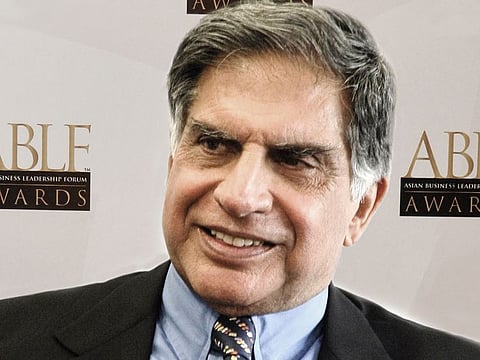Ratan Tata: Legacy of India’s legendary dealmaker under threat
Appeals court rulings a major blow to elderly business tycoon

For more than 150 years, the Tata Group has been synonymous with India’s nation-building project, venturing into everything from autos to airlines when its country needed them. And no executive better personified the country’s emergence on the world stage than Ratan Tata, whose string of dazzling takeovers took a largely domestic firm global.
Now at 81, Tata’s legacy is under threat. An internecine war over the conglomerate’s future took a crippling turn Wednesday, highlighting that even the famed Tatas aren’t immune to the corporate governance troubles that often plague the family businesses that still dominate India’s economy.
In a surprise ruling, an appeals court said Tata’s erstwhile successor, Cyrus Mistry, was improperly ousted as chairman of the group’s holding company three years ago, paving the way for his reinstatement. In a further blow to the elderly tycoon, the court found the group’s move to take the holding company private after Mistry’s removal was unlawful and must be reversed.
Also Read: Tata Salt clarifies after cyanide report
Tata can appeal the ruling to India’s Supreme Court. But the turmoil couldn’t have hit at a worse time for a $110 billion conglomerate whose products range from salt to software. It comes just as the group contends with a crisis at its British unit, Jaguar Land Rover Automotive Plc — one of the crown jewels of Ratan Tata’s buying spree — and a crushing economic slowdown at home that’s dampened demand for wares from steel to Tetley teas.
“It is a battle for honor and prestige,” said Shriram Subramanian, founder of proxy advisory firm InGovern Research Services Pvt. Ltd. “This ruling is a vindication of the position taken by Cyrus Mistry that his removal was illegal.”
‘Oppressive’ ousting
The court found the manner of Mistry’s ousting “oppressive” and restrained Ratan Tata from taking any action that would require a majority decision by the board of Tata Sons, the holding company for the overall group. (He also heads Tata Trusts, a group of philanthropic organizations that own about 66% of the equity in Tata Sons.)
The ruling leaves Tata rudderless as it faces a string of urgent decisions, including an attempt to find a partner to turn around Jaguar Land Rover and job cuts at its European steel operations. With no one clearly in charge, Tata has four weeks to appeal the decision before Mistry can technically resume his old job.
When Tata handpicked Mistry to succeed him in 2012, it seemed like a perfect fit. Mistry is the son of billionaire Pallonji Mistry, the largest shareholder of the Tata Group outside the family itself. Both hail from the same tiny Parsi religious community. However, the two soon started to clash as Mistry’s efforts to turn around unprofitable businesses — which he claimed would otherwise face 1.18 trillion rupees ($16 billion) in writedowns — threatened to roll back some of the empire-building Ratan had engineered.
Another bone of contention was Mistry’s reluctance to pay Japanese telecommunications firm NTT Docomo Inc. $1.17 billion for failing to uphold a contract that had been signed under Ratan. The 2016 coup was done at the instigation of the trusts Ratan controls, with the board saying that Mistry’s tenure had been marked by “repeated departures” from the group’s culture and ethos.
On Wednesday, the court also said that the appointment of Mistry’s replacement, Natarajan Chandrasekaran, was illegal, adding to the confusion over the group’s leadership. Chandrasekaran wasn’t seen as a long-term successor to Ratan, who’s not married, has no children and still has not said publicly who will succeed him.
Sign up for the Daily Briefing
Get the latest news and updates straight to your inbox


